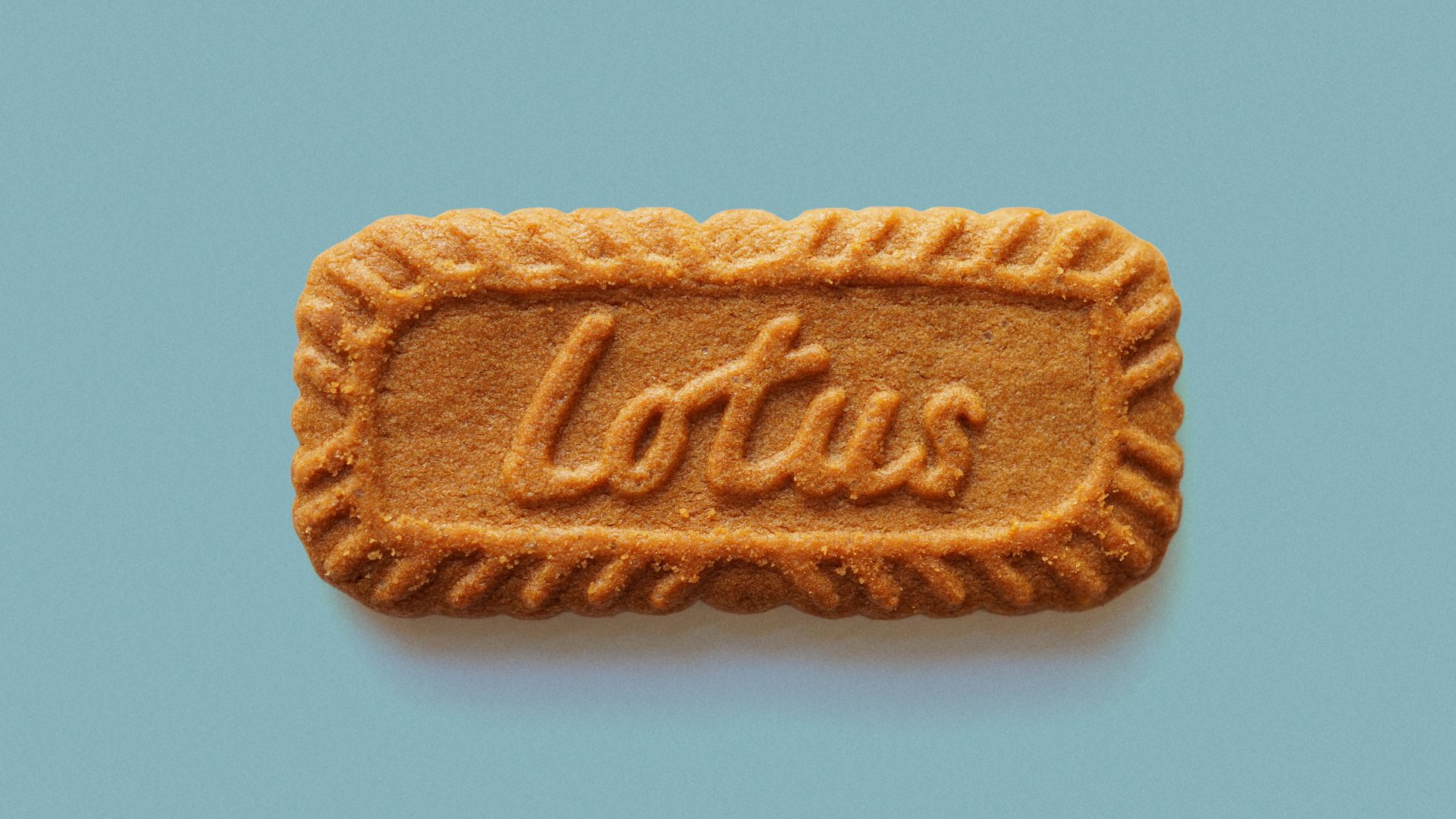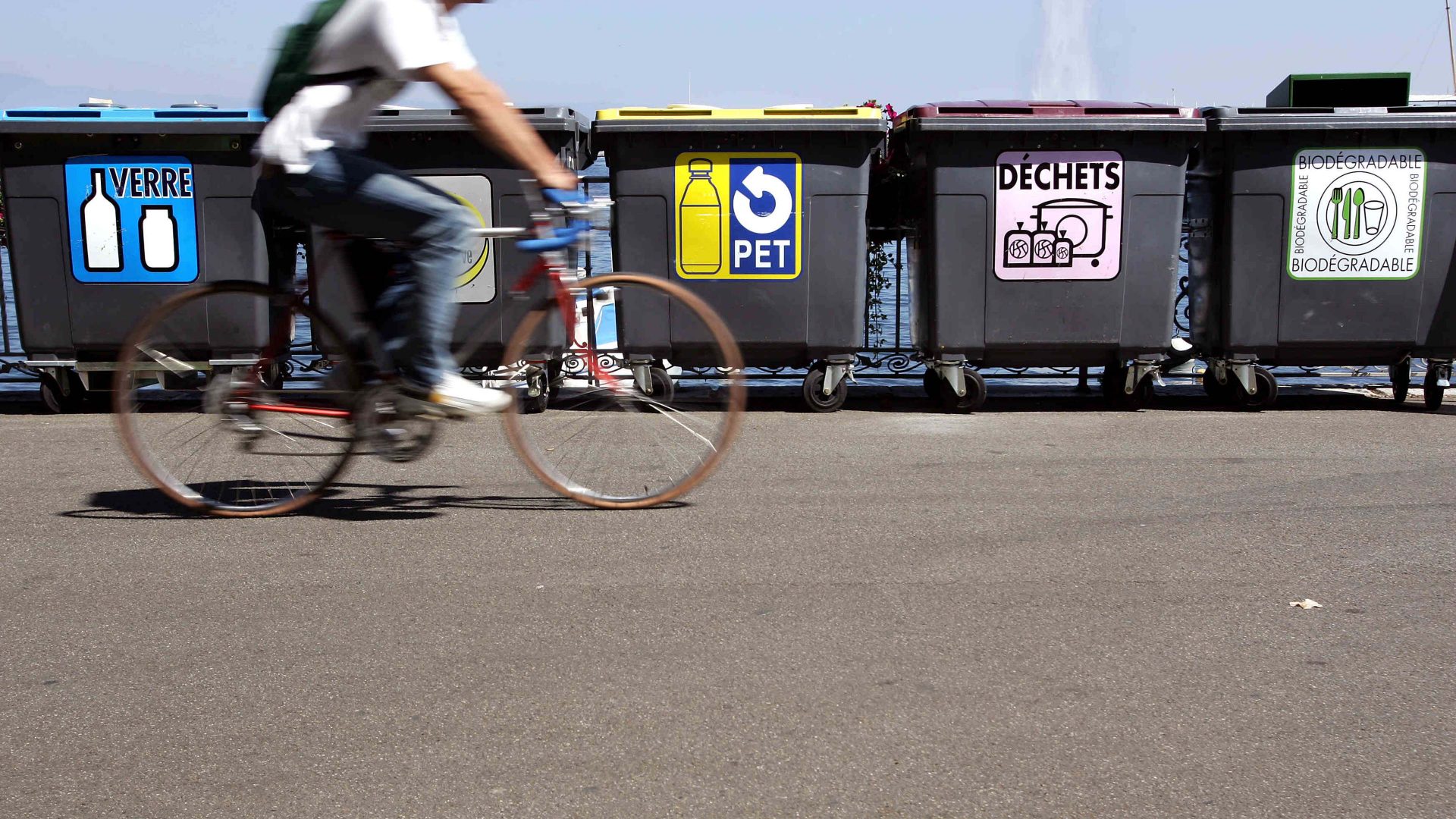With the Low Countries’ tradition of Sinterklaas fast approaching, local supermarkets have started stocking their shelves with seasonal versions of what could be described as Belgium’s unofficial national biscuit: speculoos. Be it at a more upscale supermarket like Delhaize or a discounter like Aldi, it’s hard to escape the prominent displays of speculoos in the weeks leading up to the December 6 holiday.
November tends to be the one time of year when I buy a packet of speculoos, a crunchy, caramelised biscuit that derives its flavour from a combination of cinnamon and candy syrup sugar. But I eat them all year round. Order a coffee or tea at any self-respecting establishment across our small nation, and it will be served with a single speculoos on the side. More often than not, that biscuit will come packed in a red and white plastic wrap that says “Lotus”.
Because while even foreign discounters like Aldi sell a store brand version and more fancy outfits like Maison Dandoy offer their own, pricier take, Lotus is the preferred everyman’s brand. Established in 1932 in the Flemish town of Lembeke, it remains family owned to this day.
When I was a teenager, a Flemish woman pitched a “speculoos spread” on a Shark Tank-style local TV show. Until then, Belgians dipped their speculoos in their tea or coffee to obtain the biscuity mush they could then spread across a slice of bread at breakfast. The inventor, a certain Els Scheppers, didn’t win the TV show, but her concept drew the interest of the family-owned company. Lotus speculoos spread, the first ever addition to the product range, hit the shelves a little while after.
As I started to spend more time abroad, I began to better appreciate the magic of our humble speculoos. When I studied in the UK, my mother often included a few speculoos in the parcels sent from Brussels. No longer easily available to me, they tasted better than they ever had at home.
As I grew fonder of our biscuit, so did the rest of the globe. When I studied in the US, I learned that a Californian friend’s mom knew and loved our Belgian speculoos. In a strategic partnership with Delta Airlines, Lotus had been serving American customers the cinnamon and ginger cookie as a mid-flight snack since the mid-1980s, before going on to sell them in supermarkets.
While staying with a friend in London last year, I asked her whether I could bring her anything from Belgium. She asked for speculoos. I bought her three jumbo packs, pleased that this unassuming, plain biscuit would be welcomed as a special treat.
Today, speculoos are the fifth most popular biscuit in the world according to a supposedly leading industry barometer. That a 100% Belgian and family-owned company is up there with US cookie giants like Oreo and Chips Ahoy! with an almost spartan biscuit makes me feel a little proud. We have taught the world to love something uniquely Belgian, without too many concessions along the way.
But in November 2020, as if we hadn’t had a difficult enough year already, Lotus announced it would begin selling speculoos under the brand name Biscoff in Belgium, a contraction of “biscuit” and “coffee” and the name under which the company had always sold them abroad. Faced with a deluge of angry #jesuisspeculoos responses, Lotus backtracked and announced that the original name would continue to appear side by side with Biscoff.
I didn’t join the social media outrage, but I hate the name as much as any Belgian. Like I said, speculoos are inescapable at this time of year and during my grocery run last week, there was never any question between Biscoff and Aldi’s store brand version. I went for Biscoff. Despite the new globalised name, the biscuit, thankfully, still tastes like home.
Linda A Thompson is a Belgian journalist and editor living in Brussels




